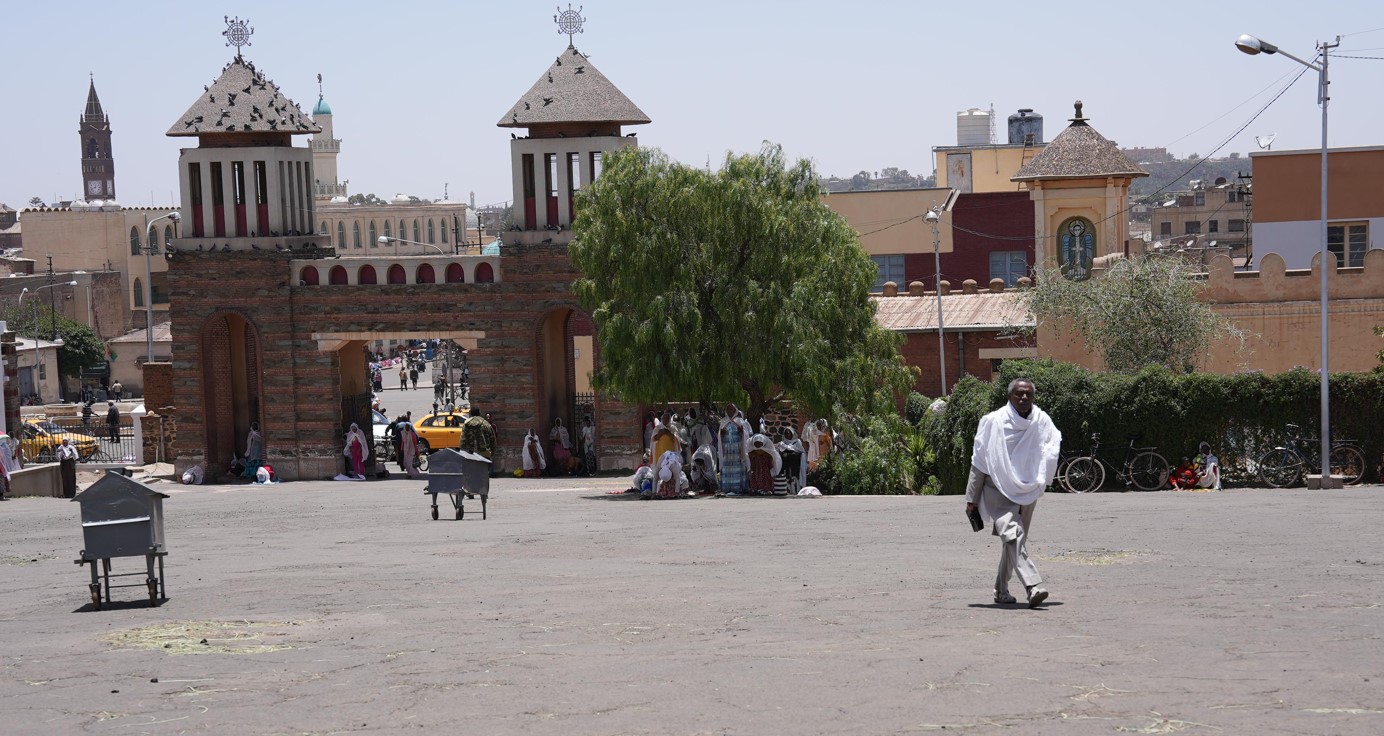In the realm of competing global narratives, some stories remain obscured, hidden beneath layers of misconception and misrepresentation. Among these tales lies the enigma of Eritrea, a nation whose reality often varies dramatically from the perceptions peddled by mainstream Western legacy media.
As a Somali journalist, my recent one-week trip to Eritrea unveiled a world of simple sophistication, resilience, and captivating allure, challenging the boring, repetitive narratives and leaving me mesmerised beyond measure.
Tucked in the Horn of Africa, Eritrea stands as a testament to the triumph of sovereignty beyond flag independence in the African continent. Stepping onto its soil, starting at Asmara International Airport, I was immediately struck by the pristine elegance of Asmara, its capital city.
The streets, adorned with meticulously manicured lawns, palm trees and unique colonial-era architecture that was well preserved, exuded an air of timeless grace. This city seemed to exist in a realm untouched by the chaos often associated with African capitals; poor urban planning, and unmitigated traffic chaos that greets new and old visitors alike.
My sojourn began at the Asmara Palace Hotel, where I encountered a young Eritrean woman whose sharp intellect and linguistic prowess made an unforgettable impression. At not more than 22 years old, she effortlessly conversed in four languages, seamlessly transitioning between Tigrinya, Arabic, English, and Italian. Her command over each tongue was not merely a display of linguistic aptitude but a testament to the country's commitment to education and the infusion of worldliness in its young population.
I wouldn’t have known what languages she spoke had she not spoken to me in Tigrinya, which she saw through my initial perplexity. I resorted to my favourite line whenever ethical ambiguity engulfed my person: “I am Somali.” After establishing that, she quipped, “Are you the only one that looks like us or do all Somalis look like us Eritreans?”
Without much thought, I jokingly replied, “No, I think it is you guys who look like us [sic]. I was wondering the same thing.” She proceeded to tell me tales of how the older generation is fond of how much Somalia and the Somali people lent a helping hand to Eritrea in its long history of struggle for independence.
As one of the first encounters in the country, I was pleased with the young lady’s social grace, and mannerisms and enjoyed every bit of the small talk, which resulted in my finding out she was indeed a competent polyglot!
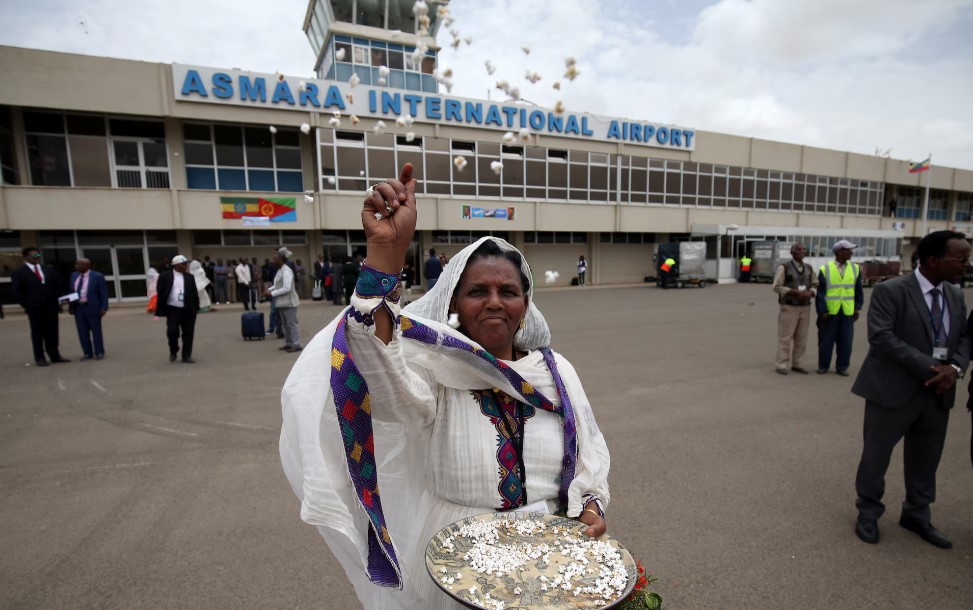 An Eritrean woman blesses passengers with popcorn after they arrived at Asmara International Airport aboard the Ethiopian Airlines ET314 flight in this file picture. (Photo: REUTERS/Tiksa Negeri)
An Eritrean woman blesses passengers with popcorn after they arrived at Asmara International Airport aboard the Ethiopian Airlines ET314 flight in this file picture. (Photo: REUTERS/Tiksa Negeri)Early workdays
After a well-deserved rest, I woke up early the next day and decided to venture out onto the street at 5.25 am, thinking it would be ideal to stroll around before the city woke up. I was surprised to find that I was among so many people on the streets.
I later learned that, normally, the workday starts early in this part of the world and there is a national cycling culture with bicycles galore.
With an intriguing and illustrious cycling heritage, Eritrea has produced many cyclists who dominate on big international racing platforms. Cyclists from Eritrea have participated in and won significant victories in both regional and international cycling races. As a result, Eritrea is widely regarded as Africa's cycling superpower.
It was outside the confines of my hotel room that I continued to truly witness the essence of Eritrea's societal fabric. Each morning, as the sun rose, I observed groups of young schoolchildren embarking on their daily journey to education.
Clad in neatly worn red shirts with black necks and sleeves, black trousers and black boot uniforms, they navigated the city’s streets on bicycles, sometimes 2 students on a single bicycle on the dedicated bicycle lane along the city’s main roads.
The sight of these young cyclists traversing the streets of Asmara stood in stark contrast to the narratives often propagated about Eritrea. Far from being a nation of gloom, here was a land brimming with youthful energy and optimism.
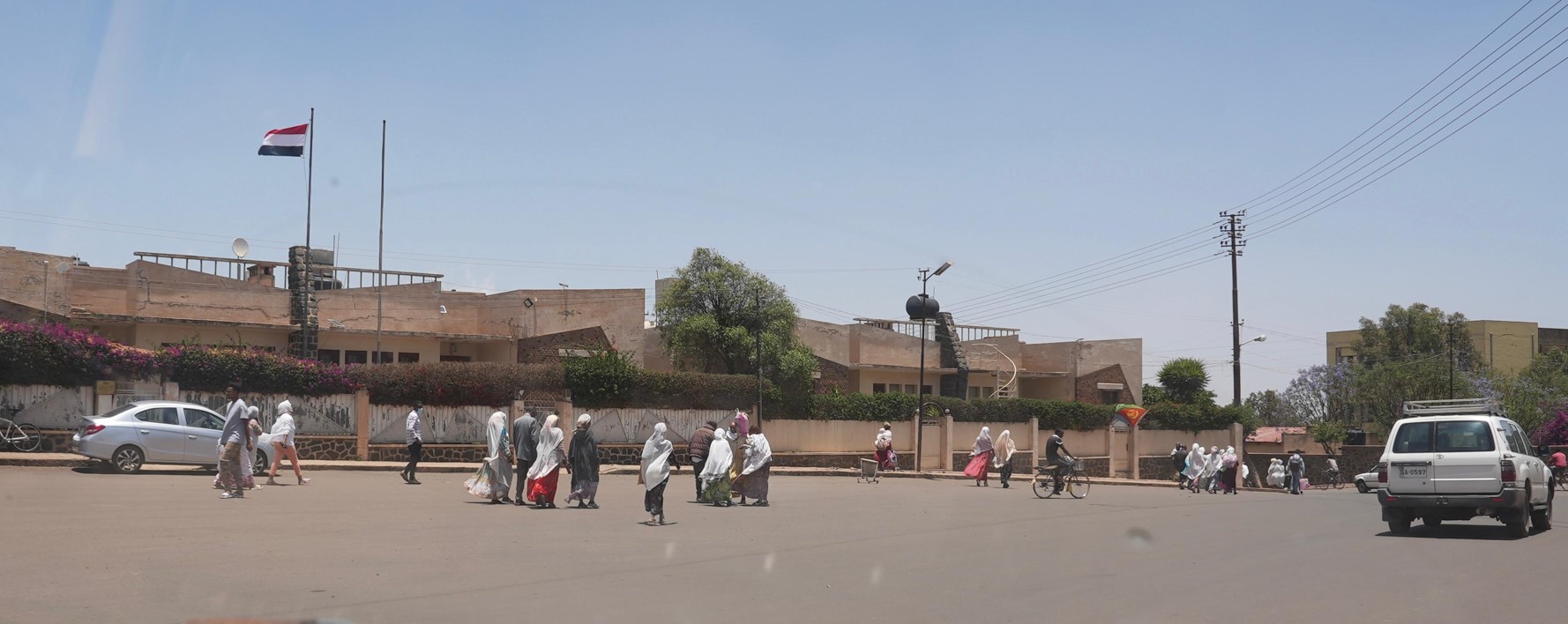 A general view of an area of Asmara, Eritrea's capital city. (Photo: Abdirizak Yusuf Ali)
A general view of an area of Asmara, Eritrea's capital city. (Photo: Abdirizak Yusuf Ali)Vibrant marketplaces
Walking around the marketplaces of Asmara with visiting acquaintances was an enriching experience filled with vibrant colours, diverse aromas, and an overwhelming palpable sense of community. The markets boast a large assortment of fresh, locally sourced produce that reflects the rich agricultural strength of the region.
From plump tomatoes and crisp greens to sweet fruits and aromatic spices, the bounty of Eritrean soil is on full display. With its farms feeding its population, food sovereignty is a leaf to be borrowed from this wonderful place.
Walk out of the stalls of produce and you will encounter an ingenious local industry which caters to the varied daily needs of Eritrean society. Skilled artisans craft everything from intricately woven fabrics and traditional handicrafts to essential household items and modern appliances. The ingenuity and craftsmanship evident in these products speak to the resourcefulness of the Eritrean people, who have mastered the art of self-reliance.
A striking aspect of the marketplace is the presence of a well-equipped workforce comprising competently educated, trained, and talented youth who are equally balanced between males and females. In this country, you will find a high degree of equitable distribution of both genders in almost every sector of society—a feat achieved by not many societies in the world, let alone in the African continent.
These young individuals, armed with knowledge and skills acquired through well-catered education and vocational training programmes, contribute significantly to the local economy. Whether managing businesses, providing services, or innovating new products, the youth of Asmara exemplify the promise of Eritrea's future, which has been well taken into account in my estimation.
As one navigates through the bustling marketplaces, it becomes clear that they are not just places of commerce but also bustling points of social interaction and cultural exchange. Conversations flow freely, laughter fills the air, and bonds are forged over shared experiences & common values, as well as local customs that are uniquely African.
I have taken a keen interest in the manner the young greet the elderly with such reverence that you wish you were an Eritrean elder. Walking through the marketplaces of Asmara offers a glimpse into the heart and soul of Eritrea, the kind you find anywhere, where tradition and modernity harmoniously coexist, and the spirit of community thrive.
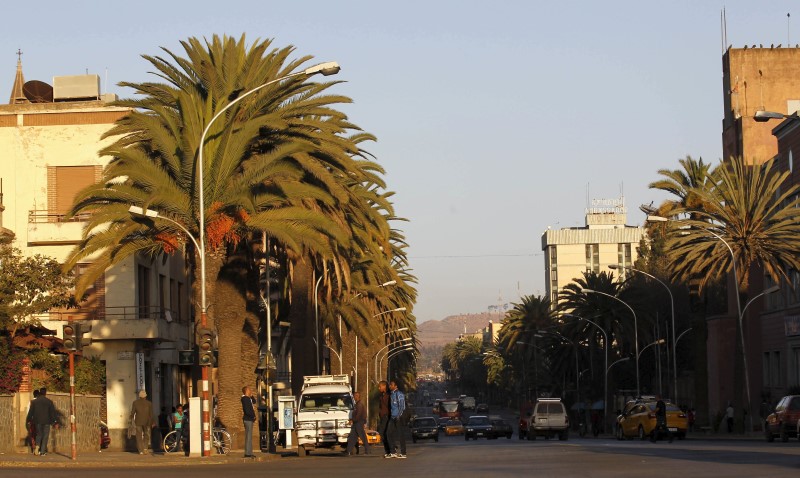 This file picture shows a general view of palm trees along the main street of Eritrea's capital, Asmara. (Photo: REUTERS/Thomas Mukoya)
This file picture shows a general view of palm trees along the main street of Eritrea's capital, Asmara. (Photo: REUTERS/Thomas Mukoya)National values
On April 29 and 30, 2024, I attended a multi-disciplinary conference organised by the Ministry of Justice, I was privileged to witness a profound discussion on integrating Eritrean values into the legal framework.
The event, held in Asmara, was a significant stride towards aligning the nation's rich cultural heritage with its legal system. The conference attracted many scholars, public intellectuals, lawyers and speakers from Africa and beyond.
This dialogue was centred on the essence of Eritrean values that have been the cornerstone of social cohesion and communal activities for centuries. These values, which have guided the nation through its struggle for independence, are now being considered for integration into the legal framework to promote sustainable development.
The Ministry of Justice, ably led by Minister Fozia Hashim, a former head of Eritrea’s High Court and a legal lighthouse in the modern history of independent Eritrea, put together this conference. It was primarily aimed at recognising the dynamic nature of customary values, especially in light of external influences such as colonisation and regional geopolitics, and embarking on a journey to reform the legal environment to meet contemporary needs.
The dialogue served as a platform for sharing experiences and formulating a common understanding of the core national values that will underpin this reform process.
As an attendee, I was struck by the commitment to synchronise a country’s legal system with its national values, given that most African countries adopted the colonial legal system handed down to us, albeit unilaterally. The discussions were not only insightful but also reflective of a collective aspiration to nurture a legal system that embodies the Eritrean spirit. This event was more than a conference to me; it was a cultural symposium, echoing the organic values of Eritrea.
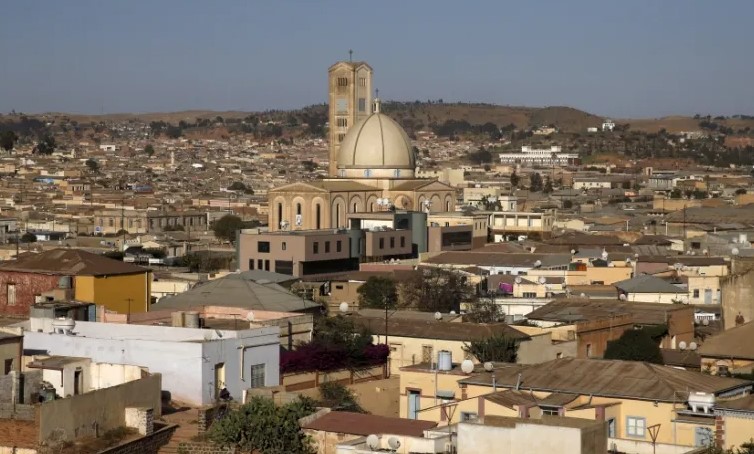 A general view of Asmara, the capital of Eritrea. (Photo: File/REUTERS/Thomas Mukoya)
A general view of Asmara, the capital of Eritrea. (Photo: File/REUTERS/Thomas Mukoya)Misrepresentation
As I dove deeper into Eritrea's culture and history, I couldn't help but reflect on the stark disparities between perception and reality. In the largely Western media, Eritrea is often maligned for not conforming like the vast majority of African states.
Such misrepresentation fails to capture the nuanced complexities of its societal landscape. Yet, my experiences in Eritrea painted a vastly different picture—one of a nation that has defied the odds and carved its path towards progress and self-determination. Here, genuine independence isn't just a lofty ideal but a lived reality.
Amid this transformative journey, I found myself grappling with a profound sense of responsibility as a journalist. It became increasingly evident that my role extended beyond merely recounting anecdotes; it was about challenging stereotypes, and fostering a more nuanced understanding of the world we inhabit particularly in a country that is integral to my part of the world—in the Horn of Africa.
As I bid farewell to Eritrea, I couldn't help but feel a sense of urgency to share my revelations with the world. It is time for Africa and us Africans to reclaim its narrative, defy the confines of preconceived notions and embrace the untold stories that lie waiting to be unearthed. In Eritrea, I found something that I did not think I had, a longing for my country to attain the same levels of decisiveness.
To my fellow Africans, I extend an appeal—a call to venture beyond the confines of familiarity and explore the wonders of this remarkable nation. Come, witness firsthand what genuine independence and sovereignty feel like. To African journalists, here lies a story that needs to be told—a story of a nation that should be replicated across the continent.

